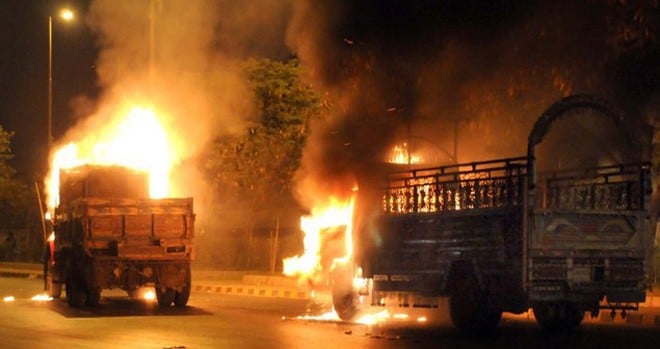

Dear all,
When I see photographs of Pakistan from decades past, it seems like another country: less crowded, more forward-looking, not so dangerous.
I look at these old images and realise they have been replaced with far bloodier and much sadder pictures, the decades between these punctuated with immense violence and a terrible brutalisation of the national psyche. I have now lived in a different country for many years, so I often muse over my memories of life in Pakistan as compared with the present day reality of life there now.
Recently, I have also been thinking of those compatriots whose communities are gradually disappearing from the national landscape, and whose homeland seems to have been wrenched away from them. Would those who had left ever want to go back to their country? Would they ever want to return to the scene of great trauma and suffering?
A few years ago the father of a friend was visiting him in the US, but he was anxious to get home to Lahore, back to the routine of his life in Model Town, back to meeting his close friends. Although now a widower, he enjoyed a fulfilling social life and had good buddies, friends he had known for years. One of their routines was to go for Friday prayers together to their ‘place of worship’, but on one fateful Friday in late May 2010, he was not with those friends because he was visiting his son in the States. His close friends were killed in the attacks on Ahmadi congregations in Model Town and Garhi Shahu. These elderly men were killed along with dozens of other people gunned down or blown up by militants claiming to be doing this in the name of religion.
The old gentleman, who had always resisted moving away from Lahore or out of Pakistan, then realised there would be no going back: his friends had been murdered, his community targeted, his memories polluted. He did not return to his beloved city.
What does it feel like to be part of a community whose elimination is now almost a matter of routine? What must it be like to know, like the Hazara community, that you are a walking target all the time? Attacks on Hazara mosques and targeting of pilgrims riding buses to or from Iran has become an almost regular occurrence, and yet nobody really does anything about the situation until there is another attack, and then various people just mutter banalities expressing condemnation…
My friend’s father might sometimes dream of going back to his old life in Lahore but I suppose he realises he can’t because it simply does not exist now. L P Hartley expressed this so so well in the first line of his novel The Go-Between: "The past is a foreign country: they do things differently there".
That is exactly the point: it is another country and things are done differently there. It is no longer your country, your city, or your neighbourhood, these have all been snatched away from you, your life, your memories, your friends and the small kindnesses of strangers have now been replaced by general apathy or vitriol…
People let go of their country and they learn to cope with new lives, yet it is still very difficult to do so because their sense of loss is immense and the feeling endures. The loss of your past, the loss of your friends, the loss of faith in the state…
"The past is a foreign country" -- especially our own.
Best wishes